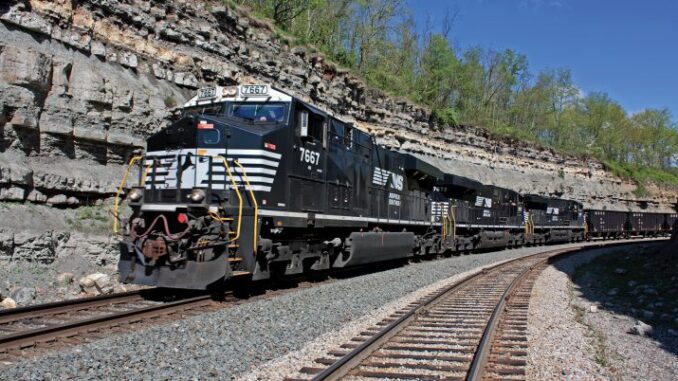
Spot ethanol prices fell Sept. 15 as freight railroad companies and unions reached a tentative labor agreement overnight to avert a nationwide rail strike that would have curtailed shipments of agricultural and energy products.
Chicago Pipeline ethanol fell 14.7 cents to be assessed by S&P Global Platts at $2.474/gal, while New York Harbor ethanol fell 16.5 cents to be assessed at $2.595/gal.
The heated negotiations sent US spot ethanol prices up earlier in the week as the risk of halted deliveries of the gasoline blendstock loomed.
With ethanol accounting for about 10%-11% of US gasoline volume, any disruption to getting that fuel to terminals for blending could have also put an end to the steady declines in gasoline prices seen since mid-June.
“We are greatly encouraged to hear that a tentative agreement has been reached, and we are hopeful that a deal will be officially finalized as soon as possible,” Renewable Fuels Association President and CEO Geoff Cooper said in a statement. “This agreement means the ethanol industry—and the entire U.S. economy—have dodged a lethal bullet. A strike-related stoppage of rail service would have been catastrophic for the ethanol industry, as more than 70% of the renewable fuel we produce is shipped by rail.”
US President Joe Biden early Sept. 15 announced that a tentative deal had been brokered to provide rail workers with “better pay, improved working conditions, and peace of mind around their health care costs.”
He noted the role played by Labor Secretary Marty Walsh, Transportation Secretary Pete Buttigieg, Agriculture Secretary Tom Vilsack and National Economic Council Director Deese in helping to reach the tentative agreement, singling out the “his tireless, around-the-clock efforts” of Walsh.
Roughly 70% of ethanol produced in the US is shipped by rail, primarily from the Midwest to coastal markets. Ethanol can also be transported by truck or barge, but the number of available barges has fallen. And barges require roughly 25,000 barrels to make the fixture economical, surpassing the typical 5,000-10,000 barrel lot sizes typically traded.
A rail strike could have threatened momentum for ethanol production growth spurred by the August enactment of the Inflation Reduction Act, which is slated to bring new tax credits and infrastructure investment to the ethanol sector that Cooper described as “transformative for the industry” and critical to meeting the country’s climate goals.
A rail strike could also have disrupted deliveries of crude in the US, primarily North Dakota Bakken crude from the Midwest to refiners on the US Atlantic Coast and US West Coast. The most recent monthly US Energy Information Administration data shows the Midwest shipping 4.619 million barrels of crude to the USWC in June, and 930,000 barrels to the USAC.
The strike also threatened to complicate coal deliveries and jolt natural gas power burns even higher as coal-dependent utilities are forced to switch to gas. US utilities consumed 31.9 million st of coal in June, led by utilities in Missouri (2.6 million st), Indiana (2.3 million st) and Texas (2.2 million st), according to latest data from the EIA, which estimates that more than 70% of all coal deliveries to power generators in the US are handled by rail. Coal accounted for 21.8% of all power generation in the US in 2021, according to the EIA.
Amid tension over a possible strike, US coal carloads dropped 7.5% on the week to 67,492 in the week ended Sept. 10, a five-week low, according to Association of American Railroads data on Sept. 14.


